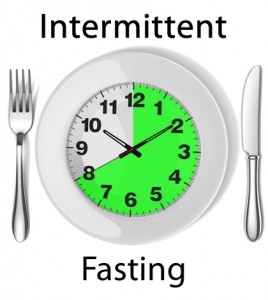 (Ann Brenoff: The Huffington Post)
(Ann Brenoff: The Huffington Post)
It seems that folks who do occasional fasts may be on to something. New research from the University of Southern California has found that periodically adopting a diet that mimics the effects of fasting could produce a wide range of health benefits.
USC researcher Valter Longo found that cycles of a four-day low-calorie diet that mimics fasting cut visceral belly fat and elevated the number of progenitor and stem cells in several organs of old mice — including the brain, where it boosted neural regeneration and improved learning and memory, according to a paper published in Cell Metabolism.
Twice-a-month four-day reduced calorie fasts that begin in middle age extended life span, reduced the incidence of cancer, boosted the immune system, reduced inflammatory diseases, slowed bone mineral density loss and improved the cognitive abilities of older mice tracked in the study. The total monthly caloric intake was the same for the fasting and control diet groups, indicating that the effects were not the result of an overall dietary restriction.
In a pilot human trial, three cycles of a similar diet given to 19 subjects once a month for five days decreased risk factors and biomarkers for aging, diabetes, cardiovascular disease and cancer with no major adverse side effects, according to Longo.
‘Strict fasting is hard for people to stick to, and it can also be dangerous, so we developed a complex diet that triggers the same effects in the body,” said Longo, who is a professor of bio-gerontology at the USC Davis School of Gerontology and director of the USC Longevity Institute.
The diet reduced the individual’s caloric intake down to 34 to 54 percent of normal, with a specific combination of proteins, carbohydrates, fats and micronutrients. It decreased amounts of the hormone IGF-I, which is required during development to grow, but it is a promoter of aging and has been linked to cancer susceptibility. It also increased the amount of the hormone IGFBP-, and reduced biomarkers/risk factors linked to diabetes and cardiovascular disease, including glucose, trunk fat and C-reactive protein without negatively affecting muscle and bone mass, according to the press release.
Longo believes that for most people, the reduced-calorie program can be done every three to six months, depending on their overall health. Longo warned that no one should attempt this diet without checking with their doctor. Diabetics should not undergo either fasting or fasting mimicking diets while receiving insulin, metformin or similar drugs, he said.
A few years ago, Longo’s research found that chemotherapy drugs might work better if administered during a brief period of fasting. Researchers looked at mice that were injected with different types of cancer cells, and found fasting before chemotherapy treatment protected the animals against some of the drugs’ toxic effects.

